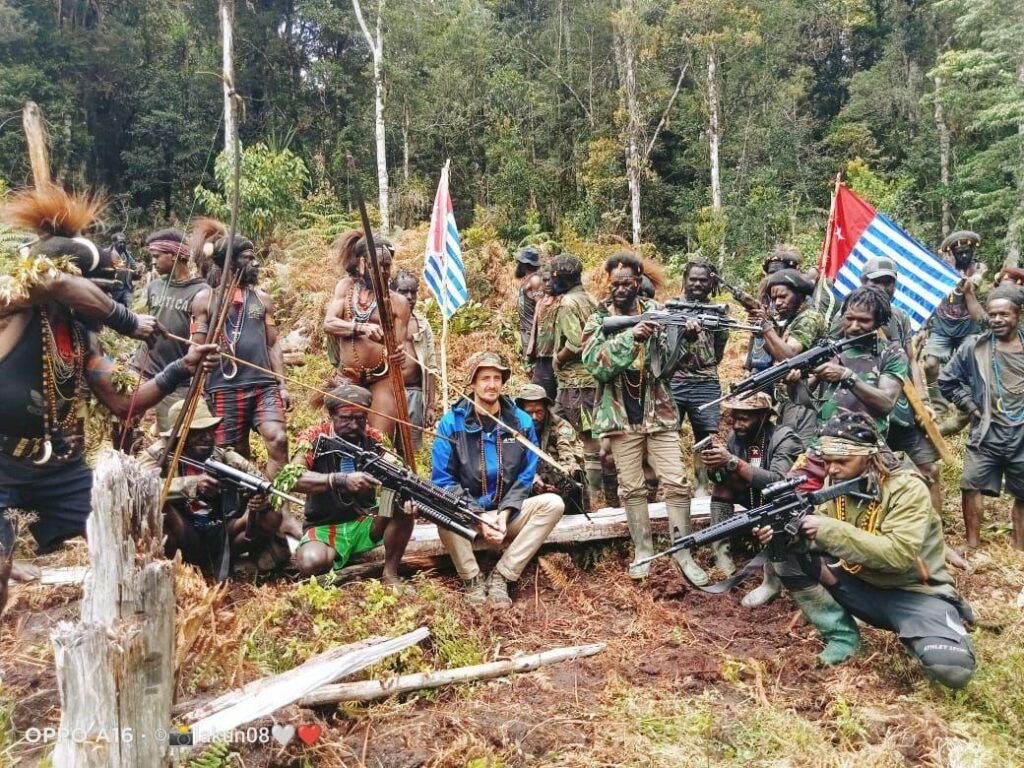A New Zealand pilot who has been released after being taken hostage by separatists in Indonesia more than 19 months ago says he is “very happy” to be returning home to his family.
Philip Mehrtens was kidnapped by fighters from the West Papua National Liberation Army in February 2023 and was released into the custody of Indonesian officials on Saturday after lengthy negotiations.
He appeared before the cameras with a gaunt appearance and a full beard, but was reportedly in good health.
The 38-year-old was abducted after landing in a small passenger plane in the remote mountainous area of Nduga.
“Today I was released. I am very happy that I can go home soon and meet my family,” Mr Mehrtens, speaking in Indonesian, told reporters in Timika.
“Thank you to everyone who helped me today so I can get out there safe and sound.”
His release follows months of “critical” diplomatic efforts by authorities in Wellington and Jakarta.
New Zealand Prime Minister Christopher Luxon welcomed the release and New Zealand Foreign Minister Winston Peters added: “His family will be overjoyed.”
According to Bayu Suseno, spokesman for the Indonesian police, Mehrtens was released and then arrested in the village of Yuguru in the Maibarok district and flown to the city of Timika.
Days before the release, the rebels told the Indonesian BBC that they would release Mehrtens “safely and in accordance with international standards for the protection of human rights.”
“We, the West Papua National Liberation Army (TPNPB), remain committed to upholding the values of peace, respect and dignity in this situation,” said spokesperson Sebby Sambom.
The pilot, father of one child, is flown to Jakarta to be reunited with his family.
He was kidnapped after his small passenger plane, which belongs to the Indonesian company Susi Air, landed in Nduga in February last year.
He was supposed to return a few hours later, after dropping off five passengers. Shortly after landing, however, the single-engine plane was attacked and captured by rebels.
The five other passengers, indigenous Papuans, were released.
The kidnapping was part of a long-standing and often brutally violent conflict between the Indonesian government and the indigenous population of West Papua.
In April, at least one Indonesian soldier was killed after he was ambushed by rebels while searching for the kidnapped New Zealander in the Papua region.
Last month a pilot from New Zealand, 50-year-old Glen Malcolm Conning shot dead by a pro-independence group called the Free Papua Organisation (OPM) after they landed in the region with two Indonesian health workers and two children. They all survived.
Authorities say the group responsible for Conning’s death is the same one that held Mehrtens.
A spokesman for the West Papua National Liberation Army previously told the BBC’s Indonesian service that they wanted to keep Mr Mehrtens in custody until countries “such as New Zealand and Australia” took responsibility for their alleged role in the violence in Papua.
Indonesian President Joko Widodo said on Saturday that Jakarta could have ensured Mr Mehrtens’ safety through continued negotiations, not force.
He told reporters: “We prioritised the safety of the pilot who was taken hostage. It was a long process.”
Why is there conflict in West Papua?
The region is a former Dutch colony divided into two provinces, Papua and West Papua. It is separated from Papua New Guinea, which gained independence from Australia in 1975.
Papuan rebels seeking independence from Indonesia have previously made threats and attacked planes they believe were carrying personnel and supplies to Jakarta.
The resource-rich region has been embroiled in a struggle for independence since it was brought under Indonesian rule in a controversial UN-sponsored vote in 1969.
Conflicts between indigenous Papuans and the Indonesian authorities have been common since then, Pro-independence fighters have been carrying out attacks more frequently since 2018.

